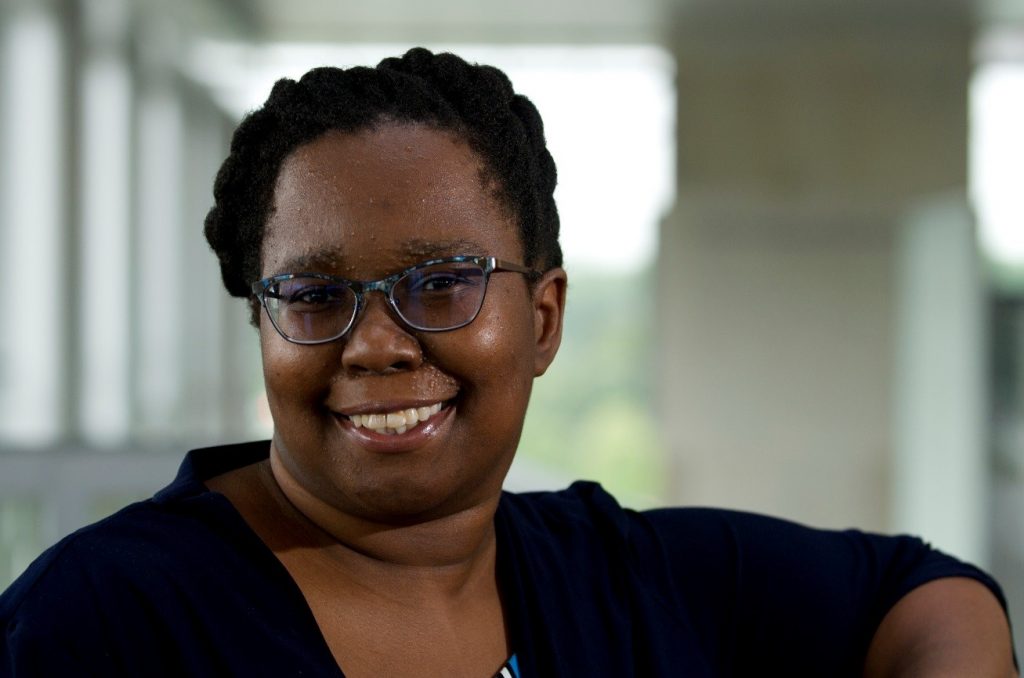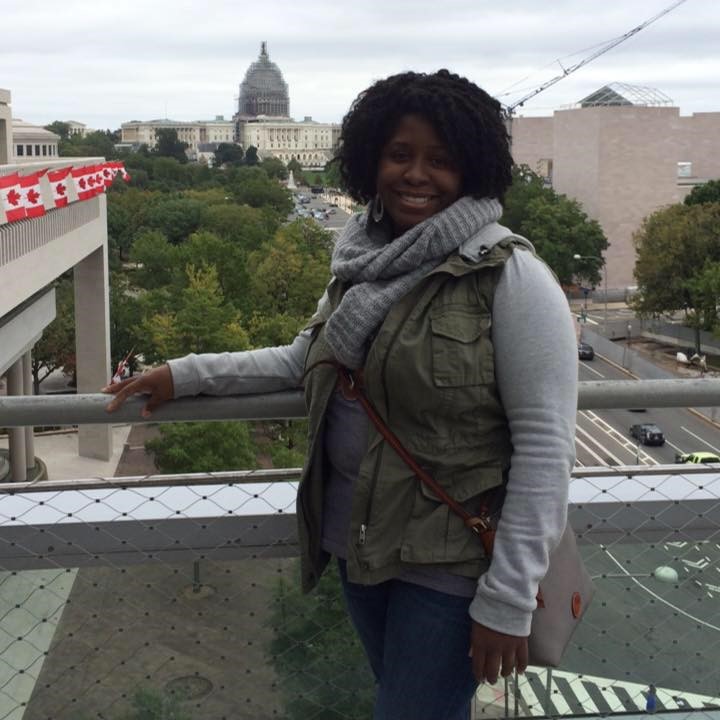The Alternative Voices Feature is brought to you by the NMRT’s Membership, Diversity, Promotion, and Recruitment committee. It is meant to give a platform to the voices of librarians from underrepresented communities in the library field. The format of the feature is a journalistic question and answer format. It provides information that the librarian wants people to know about them, plus their thoughts on the current state of the field of librarianship.

Name – Gemmicka Piper
Contact Information – piperg@iu.edu
City & State – Indianapolis, IN
Position Title – Humanities Librarian
Length of time in the library field – 2.5 years
Tell us a little bit about your background. Where did you attend college? What degrees do you have? What programs (undergraduate or graduate) prepared you for your current position? Tell us about your position and what you do? What is your definition of diversity, or equity or inclusion?
As the Humanities Librarian, I serve as the departmental liaison for both English and World Languages and Cultures. I graduated with a B.A. in English/minor in East Asian Studies from Truman State University. From there, I attended graduate school at the University of Iowa where I earned an MA/PhD in English, as well as an MLIS with a certificate in Public Digital Humanities.
Earning my doctoral degree was perhaps the most selfish thing I could have ever done for myself, and definitely helped prepare me for what I do now. I worked as a graduate instructor in English and Rhetoric for five years before transitioning into the library field. Teaching forced me to focus more on my visual and oral presentation skills, which continues to assist me in my current work. I am constantly drawing on subject expertise when making decisions about what new items to purchase, evaluating the types of service projects I want to get involved in, and as I am enabling students to better think through the research process.
Having a choice in the work I do as a librarian and as a humanities researcher, in addition to the administrative and financial support to explore those areas are part of what I consider true inclusion. It’s putting your money where your mouth is and supporting professionalization that allows for the growth of the whole person, rather than settling for representative quotas.
Before you became a librarian, what were you thinking about doing professionally or academically?
This may sound corny, but I never really settled on one professional identity. Before majoring in English, I studied Biology. Very easily, I could have majored in History. I’ve always been interested in understanding people and legacies. I decided on English because I loved writing, reading, and critical analysis. In graduate school, I quickly realized that my personality quirks and lack of grace in confronting office politics were not a good mesh with the academic culture. I had no idea about what else would be a good fit. I ended up taking this young adult literature class with this phenomenal middle-school librarian. From there everything sort of just clicked.
How was the initial job search process for you?
It was very difficult. I graduated in May, I had interviews throughout spring but nothing stuck. I ended up heading back home to Kansas City, MO before landing a Residency/Visiting Assistant Position out in Ohio. Landing my first position in the library took about six months.
Do you have any advice for new graduates applying to jobs?
Make sure that your CV is up to date and is in some sort of order that is conducive to highlighting your skills rather than a chronological listing of what you have done. The CV is what opens the door for the interviews, it’s worth investing the time into cleaning it up and making sure it accurately reflects your skill set. Take advantage of any career readiness workshops offered by your LIS school or on your campus. If you don’t have access to that, attend any resume or CV reviewing workshops being offered at your public library. Additionally, once you get the first interview, keep in mind that some places use this as an opportunity to meet state-mandated objectives around applicant pools; the interview is your time to find out what the institution is really about and how you might fit/grow there.
What do you know now that you wished you’d known when you were just beginning your job hunt?
Honestly, I think people need to discuss more about Residencies. When I looked for information on Residencies, I found a plethora of individuals discussing what they liked about their experience. Their experiences were definitely not anywhere close to the experience I had with mine. It took a while to land the right position for me. Likewise, I think LIS schools should address more frankly issues in workplace cultures and offer advice on coping with toxic/dysfunctional work environments. As a new professional this would have been really helpful just starting out.
Is there anything more that you would like to see NMRT or ALA as a whole do as a method to ensure the promotion of diversity and alternative voices?
Getting involved with ALA and ACRL has been really difficult. Part of this may be because when new opportunities for service are open, they come across specific listservs, which you may not be part of. In the year that I was an NMRT member, I never received any information about service opportunities that I could participate in; the same is true for ALA. I think that there still needs to be one port for service specific opportunities that early career professional can get involved with.
When you were growing up, did you feel that the libraries accurately reflected the community you lived in?
Growing up, I lived in predominately African American and racially mixed neighborhoods. The local public libraries reflected this very well. Our public library had multiple branches throughout the metropolitan Kansas City area. We had black, white, and Latino librarians/staff members located in areas where the patrons made up a significant portion of this demographic.
How well do you think that the library (or system) you currently work in reflects the needs of its community?
I am one of four public facing librarians that are unquestionably nonwhite. I serve at an urban institution where there are many racial and economic variances and is primarily still a commuter campus, though that is changing. Behind the scenes, our librarians collaborate on making sure that we embed diversity within our collection areas. Outside of that, my library actively tries to engage with the local community through supporting the preservation and digitization of local history, archives, and programs that align with our mission statement on social justice. On my own time, I try to get involved with campus retention initiatives that seek out individuals to work directly with marginalized student groups. Also, I work on the creation of various instructional media that aims to tear down barriers that still surround the accessing of information for certain segments of our academic student population.
What trends are most impacting the field right now?
Depending on the type of librarian you are, as well as your expertise, this question has many answers. If you had asked me when I initially graduated, I would have said that digital humanities and digital scholarship. However, now that I have been in the field, it is very clear to me that alternative publication models and open access are two major trends shaping the information literacy field. For my subject area, I am seeing more of a need for research and instructional support in online/distance learning environments.
Do you have a guilty pleasure read?
I am a sucker for a well-put together narrative and developed characters, no matter its genre. I am currently reading Marlon James’ Black Leopard, Red Wolf (2019).


